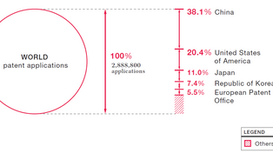What is originalityin copyright?
- May 10, 2023
- 1 min read

In order for a work to be protected by copyright, it must possess originality. This means that the work must be created independently, without copying from another work. However, the work need not be, particularly unique or novel. Even if two works are based on the same underlying idea or concept, each may be protected by copyright as long as one was not copied from the other. It is possible for authors to create works based on other authors' works, such as translating a novel into a different language or adapting it into a film. However, permission is required if the original work is still under copyright protection. Works must also display some degree of creativity to be considered original and protected. The required level of creativity may vary among countries. Disputes regarding alleged copying may be resolved differently depending on the level of originality of the work. Highly original works may be easier to prove as being plagiarized if they are very similar to another work. On the other hand, less original works may require more evidence to prove similarity is a result of copying rather than coincidence. Although the required threshold of originality is not high, the copyright system generally operates smoothly.

































Comments